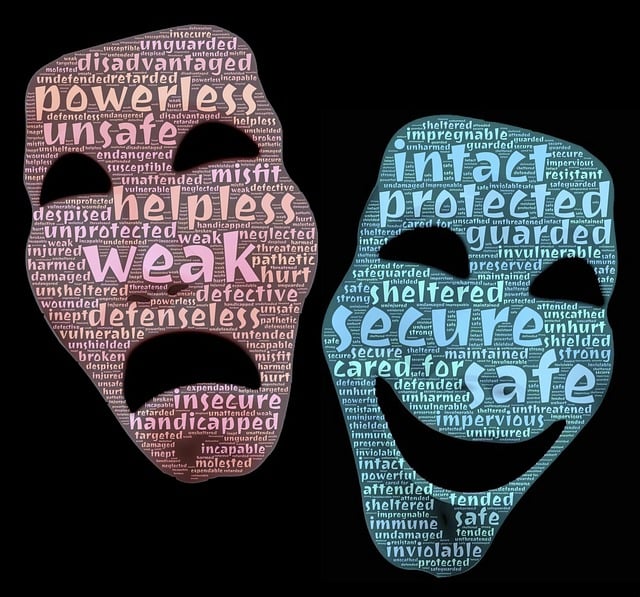
How Expressing Vulnerability in a Relationship Can Help Build Deeper Connection: Understanding the Distinction Between Weakness and Strength
In today’s fast-paced and often emotionally guarded world, the concept of vulnerability is frequently misunderstood. Particularly in romantic relationships, vulnerability can be mistaken for weakness, dependency, or being “too emotional.” In some circles, especially among men, it’s even equated with being a “Simp”—a derogatory term used to describe someone perceived as overly submissive or eager to please their partner. But the truth is, genuine vulnerability is a profound strength. It has the power to deepen trust, foster emotional intimacy, and create a lasting foundation of love and understanding.
This new article explores how expressing vulnerability in a relationship can build a deeper connection, and why it is far from being weak or “simp-like.” Rather, it is a courageous act of authenticity, maturity, and emotional intelligence.
What is Vulnerability in a Relationship?
Vulnerability in a relationship is the willingness to be open and honest about your thoughts, feelings, needs, and fears—even when doing so feels uncomfortable or uncertain. It means dropping your guard, removing your emotional armor, and trusting your partner with the real you, not just the curated, polished version of yourself.
This could involve:
- Admitting fears of inadequacy or rejection
- Expressing needs for reassurance or affection
- Opening up about past trauma or insecurities
- Saying “I love you” first
- Apologizing sincerely after a mistake
- Asking for help or support
These acts of vulnerability demonstrate authenticity and a deep level of self-awareness. They invite your partner into your inner world and build a space where both people can be seen and accepted without judgment.
The False Link Between Vulnerability and Weakness
Modern society often glorifies independence, stoicism, and emotional self-sufficiency, especially for men. This conditioning leads many to believe that expressing emotions or needs is a sign of weakness. The term “simp” has become part of pop culture lingo to mock individuals who are openly affectionate, caring, or emotionally available—suggesting that loving deeply or showing vulnerability makes one less respected or less masculine.
But nothing could be further from the truth. Vulnerability is not about begging for attention or surrendering your boundaries. It is not about losing yourself in someone else or prioritizing their happiness above your own to your detriment. True vulnerability is an act of bravery. It takes far more strength to be open and emotionally honest than it does to hide behind silence or emotional detachment.
In fact, people who are comfortable being vulnerable demonstrate emotional resilience. They are secure enough in themselves to acknowledge their needs, admit their flaws, and risk rejection in pursuit of genuine connection. That is not weakness—that is strength.
How Vulnerability Builds Deeper Connection
1. Creates Emotional Intimacy
Surface-level conversations and interactions can only sustain a relationship for so long. Emotional intimacy is what makes a bond meaningful and lasting. Vulnerability fosters this intimacy by encouraging deeper understanding and empathy between partners. When you let your guard down and share your inner experiences, your partner sees the real you, which invites them to do the same. This mutual sharing creates a bond that is rich, honest, and deeply connected.
2. Builds Trust
Trust is essential in any relationship, and vulnerability is one of the key ways to build and reinforce it. When you are vulnerable with your partner, you are saying, “I trust you with my heart.” This openness often encourages reciprocation, establishing a safe emotional space where both individuals can be themselves without fear of judgment.
3. Enhances Communication
When couples avoid vulnerability, communication often becomes superficial or defensive. Vulnerability opens the door for honest, non-defensive dialogue. It allows you to speak from the heart, express unmet needs, and navigate conflicts with empathy and understanding. Vulnerable communication invites collaboration instead of confrontation.
4. Encourages Growth and Healing
Everyone carries emotional wounds, insecurities, and fears. In a healthy relationship, vulnerability allows for those wounds to be seen and healed. Being open about your struggles invites compassion and support, both of which are critical for personal and relational growth. Vulnerability can also help break toxic patterns and build healthier dynamics.
5. Strengthens Commitment
When partners can be vulnerable with each other, they often feel more bonded and committed. Vulnerability signals emotional investment. It tells your partner, “You matter to me enough for me to take this emotional risk.” This kind of transparency strengthens the commitment to weather challenges together and deepen the emotional connection.
Practical Ways to Practice Healthy Vulnerability
If vulnerability doesn’t come naturally, the good news is that it can be developed. Here are a few practical strategies to help you embrace vulnerability in your relationship:
- Start Small: You don’t have to reveal everything at once. Begin with small, honest expressions of how you feel and build from there.
- Use “I” Statements: Express your feelings using “I” statements, like “I feel anxious when I don’t hear from you,” rather than blame-based language.
- Be Honest About Your Needs: Whether it’s needing reassurance, physical affection, or time alone, articulating your needs is a key part of vulnerability.
- Share Your Fears: Talk about your insecurities or past experiences that shape how you relate. It builds empathy and understanding.
- Practice Active Listening: Show your partner that you value their vulnerability too by listening without interrupting, judging, or trying to fix everything.
Redefining Masculinity and Strength
One of the biggest shifts needed in modern relationships is redefining what it means to be strong. Masculinity, in particular, has long been associated with emotional stoicism, dominance, and control. But true strength lies in being fully human—in owning your emotions, expressing love without shame, and showing up authentically in your relationships.
It’s time to move beyond outdated stereotypes and embrace a more inclusive, emotionally intelligent view of strength. Men who are vulnerable are not weak; they are brave. They are the kind of partners who build lasting, meaningful relationships because they lead with heart, not ego.
The Balance: Vulnerability with Boundaries
Of course, vulnerability doesn’t mean sharing everything indiscriminately or losing your sense of self. Healthy vulnerability includes boundaries. It involves being intentional about what you share and ensuring that your openness is met with respect and mutual care.
If you find that your vulnerability is consistently dismissed, mocked, or weaponized in your relationship, that is not a safe or healthy space. Vulnerability should be met with empathy, not exploitation. Choosing to be vulnerable should always include choosing people who are emotionally safe.
Vulnerability is Strength
Expressing vulnerability in a relationship is one of the most courageous and impactful things you can do. It builds trust, deepens emotional connection, enhances communication, and fosters growth. It allows both partners to be fully seen, accepted, and loved for who they truly are.
Being vulnerable doesn’t make you a simp or weak. It makes you real. It makes you human. And most importantly, it makes you a better partner.
So the next time you feel the urge to hold back out of fear of looking weak, remember: vulnerability isn’t about losing power—it’s about sharing it. And in that mutual sharing lies the foundation for the kind of love that lasts.

dr.dan
Related Posts
How Expressing Vulnerability in a Relationship Can Help Build Deeper Connection: Understanding the Distinction Between Weakness and Strength
In today’s fast-paced and often emotionally guarded world, the concept of...
The secret of marital success: Working on yourself first for a better relationship in the future. Why individual relationship counseling is key prior to considering couples counseling?
Embarking on the journey of self-improvement before entering a relationship...
Building emotional intimacy after the spark is gone. The many struggles couples face in the 21st century! Finding effective strategies that can work when putting in the effort!
Emotional intimacy is the bedrock of a healthy, long-lasting relationship. It...
Exploring the upsides and downsides of excessive romantic dependence in new or existing relationship
Examining the advantages and disadvantages of being overly emotionally attached...




